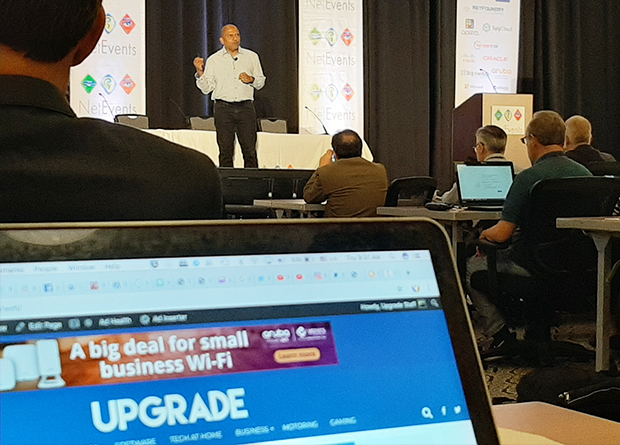SAN JOSE, CALIFORNIA – Digitization is driving disruption. So said Ravi Chandrasekaran, SVP for enterprise networking business of Cisco, here at NetEvents 2019: Global IT Summit, as he stressed that – exactly because of IT-related disruptions – the traditional ways of doing business just won’t work anymore.
There is a “need to transition to a digital-ready network,” he said, and so with this, “automation is key.”
As it is, with digitization, businesses are always at risk for being breached. “When you look at security in this new world, it’s completely different. Cyberattacks are accelerating, (and) companies lose hundreds of millions from malware,” Chandrasekaran said.
How this happens is simple – for instance, a laptop can get infected; when this is plugged into a network, the malware moves from there to the network; and after finding a weakness I that network, the damage is done.
“All it takes is four minutes to bring down a network,” Chandrasekaran said, even if containing the same breach can take, on average, 60 days; with the average cost of data breach pegged at $3.8 million.
The costs of data breaches may actually be higher.
In July, IBM and the Ponemon Institute released “Cost of a Data Breach“, which noted that the latest cost of a data breach averages $3.9 million.

Among the companies surveyed by IBM/Ponemon Institute, in fact, data breaches cost companies $150 million per record, a figure higher than 2018’s $148 million, which was also up from $141 million in 2017.
A promising move that is seen, though, is security automation, with companies that deployed such technologies experiencing around half the cost of a breach ($2.65 million on average) compared to those that did not have these technologies deployed ($5.16 million average).
Not surprisingly, for Chandrasekaran, “this is why businesses should focus on automation and data-driven network with built-in security.” This will “free IT from being reactive to being proactive.”














































































































